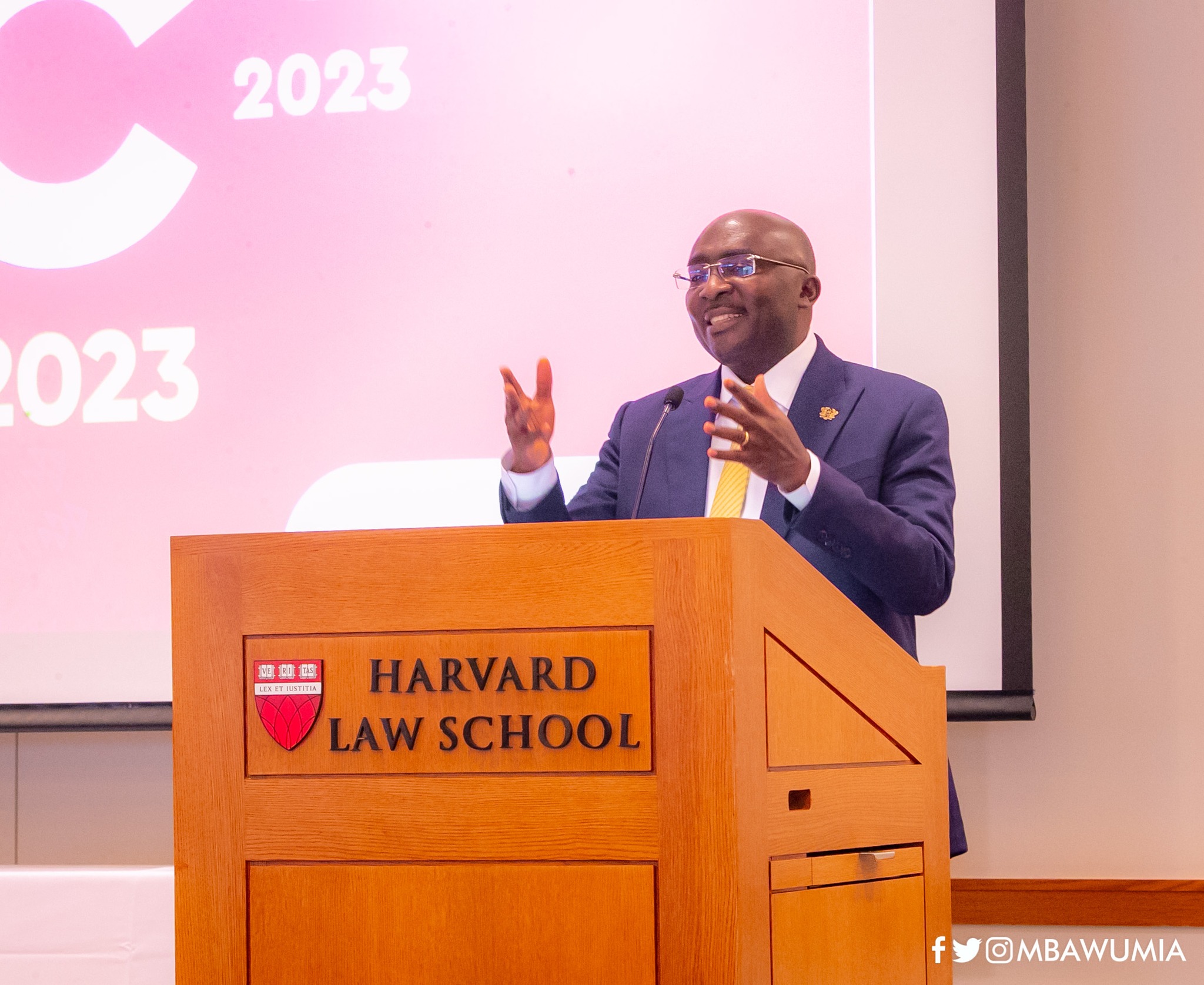Ghana’s Vice President, Dr. Mahamudu Bawumia, addressed the African Development Conference organized by Harvard Kennedy School’s Africa Caucus and Harvard Law Students Association in Cambridge,Massachusetts, emphasizing the importance of Africa charting its own course towards a more prosperous and inclusive future. The conference’s theme, “Reimagining Africa’s growth on our terms,” was described as timely and appropriate, given the continent’s unique histories, cultures, and aspirations, and the need to move away from the effects of colonialism and external forces. Dr. Bawumia stated that by 2050, Africa would have the largest youth population in the world, with one in five people globally being African.
Dr. Bawumia highlighted the need to fix Africa’s problems on the continent and assert its true power, which would allow it to be respected and contribute its cultural and creative influence to the world. The Vice President noted that Africa has been at the receiving end of other people’s ideas and dreams for too long, and it is time to leave behind an Africa called to the table and told what to do.
In his speech, Dr. Bawumia assessed Africa’s collective progress since independence and pointed out that many African countries were trying to grow and develop with very inefficient underlying systems that do not provide sufficient microfoundations to underpin sustainable growth and development. For example, many countries did not have unique identification for their populations, and many did not have functioning property address systems.
Furthermore, the majority of the populations in many African countries were excluded from the financial system, with no access to bank accounts, and the payments system in many countries was dominated by cash, making it inefficient and non-transparent. Public services were also not efficient, leading to the exclusion of the vast majority of the population for the benefit of the elite.
Dr. Bawumia emphasized the need to adopt digitalization as a means to transform Africa’s underlying systems to provide the necessary microfoundations to underpin sustainable growth and development. The Vice President cited Ghana’s digitalization story as an example of how Africa could transform its underlying systems, leading to the country’s progress in recent years. He emphasized that digitalization would help create a formal economy, unique identification for the population, and functioning property address systems.
Furthermore, digitalization would allow the majority of the population to have access to the financial system, making it easier to save, and increase transparency in the payments system. Public services would become more efficient, leading to the inclusion of the vast majority of the population for their benefit.
In conclusion, Dr. Bawumia called on African countries to take charge of their development and embrace digitalization as a means to transform their underlying systems, making them more efficient and inclusive. This, in turn, would enable Africa to assert its true power for the benefit of its people and their dignity wherever they may be, both in and out of the continent.
